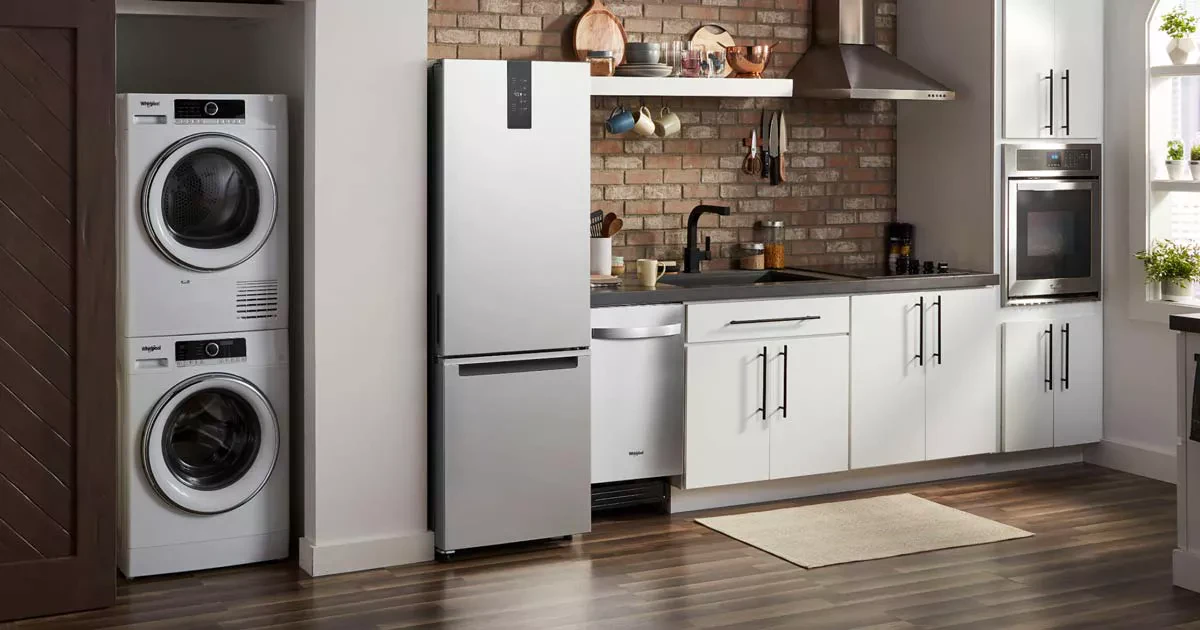Getting rid of old or unused small kitchen appliances can feel like a challenge, especially if you’re not sure what the best options are. But in Michigan, there are several easy and responsible ways to clear out your kitchen clutter and give your appliances a new life. Whether you choose to recycle, donate, sell, or repurpose them, you’ll be making a positive impact on the environment and your community. In this blog post, A&B Junk helps to explore the different methods available to you, so you can say goodbye to your old appliances with confidence and care.
Understanding the Need for Proper Disposal

Disposing of small kitchen appliances properly is important for several reasons. First, it reduces the environmental impact of waste, as many kitchen appliances contain metals and other materials that can be recycled or repurposed. Proper disposal also prevents harmful chemicals from entering the ecosystem through landfills. Moreover, recycling and donating can help your local community by providing usable appliances to those in need or by supporting local recycling programs.
Proper disposal of waste is essential for protecting the environment and human health. Improper disposal can lead to pollution, harming wildlife, waterways, and soil quality. It can also pose health risks to people through contamination of air and water. Proper disposal methods, such as recycling and composting, help conserve resources and reduce landfill usage. By managing waste responsibly, we contribute to a cleaner, healthier planet for current and future generations.
Recycling Options in Michigan
Michigan offers numerous recycling options for small kitchen appliances. Local recycling centers often accept electronic waste, including small kitchen appliances. These centers may have specific days or collection events for accepting these items, so it’s advisable to check with your local center for specific guidelines.
Recycling programs in Michigan often partner with electronics manufacturers and retailers to offer take-back programs. Retailers like Best Buy and Staples may accept your old appliances for recycling, sometimes even providing incentives or discounts on new purchases in exchange for your old items. These programs are an excellent option if you plan to upgrade your appliances.
Michigan offers a variety of recycling options for residents, including curbside pickup programs and drop-off centers for recyclable materials such as paper, glass, plastic, and metal. Many municipalities partner with residential removal services to provide regular collection of recyclables alongside trash removal. This convenient service encourages residents to participate in recycling and reduces landfill waste. Some areas also offer yard waste and organic recycling, contributing to a greener, more sustainable community. Residents should check local guidelines for specific recycling practices and options.
Donating Usable Appliances
If your small kitchen appliances are still in good working condition, consider donating them to local charities, shelters, or thrift stores. Many organizations in Michigan accept donations of gently used appliances and other household items. These donations can benefit individuals and families in need, and you may even receive a tax deduction for your contribution. Before donating, make sure your appliances are clean and in good working order. Contact the organization you plan to donate to in advance to confirm their acceptance criteria and any specific drop-off instructions.
Donating usable appliances is an excellent way to support your community while reducing waste. Instead of discarding working appliances, consider donating them to local charities, shelters, or non-profit organizations that accept them. This allows others in need to benefit from your generosity and helps decrease the demand for new appliances, thereby conserving resources.
Many appliance removal services offer convenient pickup options for donating usable items. They can collect appliances directly from your home and deliver them to organizations that can put them to good use. This hassle-free approach makes it easy for you to contribute positively to your community.
Selling Small Kitchen Appliances
Another option for disposing of small kitchen appliances in Michigan is to sell them. Online marketplaces such as Craigslist, Facebook Marketplace, and eBay provide platforms for selling used appliances. Selling your items not only helps you declutter your kitchen, but it can also provide you with some extra cash. Before selling, clean your appliances thoroughly and take clear, well-lit photos of them. Provide detailed descriptions of their condition and any known issues to potential buyers. Be mindful of safety and privacy when arranging sales and transactions.
Selling small kitchen appliances is a great way to declutter your home and earn some extra cash. Whether you’re selling items you no longer use or upgrading your kitchen, online marketplaces and local classified ads provide convenient options for finding buyers. When selling used appliances, make sure to clean and test them thoroughly before listing. Additionally, consider potential health hazards like outdated appliances with old wiring or damaged cords, as these can pose safety risks to buyers. Properly removing any hazardous appliances can help avoid accidents and ensure a safe selling process.
Curbside Collection and Trash Disposal
In some cases, you may be able to dispose of small kitchen appliances through curbside collection services provided by your local waste management department. Check with your local municipality for their policies on appliance disposal, as they may vary by location. Some areas offer bulk pick-up services for larger items, including small kitchen appliances, while others may require you to drop them off at designated facilities. Keep in mind that throwing appliances in the regular trash is not the most environmentally responsible option, as it contributes to landfill waste. Additionally, some appliances may be prohibited from regular trash disposal due to hazardous materials.
Curbside collection and trash disposal services play a key role in keeping communities clean and healthy. These services provide a convenient way for residents to dispose of household waste responsibly. Regularly scheduled pickups ensure that trash doesn’t accumulate, reducing the risk of pests and odors. By sorting waste into designated bins, residents can also support recycling efforts, promoting sustainability. Properly managed curbside collection helps maintain the aesthetic and environmental quality of neighborhoods.
Upcycling and Repurposing
If you’re feeling creative, consider upcycling or repurposing your small kitchen appliances. Upcycling involves transforming an old item into something new and useful. For example, you could repurpose an old toaster as a planter for small plants or herbs. Upcycling not only reduces waste but also gives you a chance to create something unique for your home. Before starting any upcycling project, ensure that your appliance is safe to use in its new form and that you have the necessary skills and tools for the transformation.
Upcycling and repurposing involve transforming old or unused items into new, useful products. This creative approach reduces waste and conserves resources by extending the lifespan of materials. From turning wooden pallets into furniture to crafting decorative pieces from glass bottles, upcycling allows for innovative and sustainable solutions.
When you’re ready to declutter, junk removal services can help by collecting unwanted items from your home. They often partner with organizations that repurpose or upcycle collected goods, giving them a second life. This collaboration supports a circular economy, reduces landfill waste, and benefits the environment.
FAQs
Can I put small electrical items in the recycle bin?
Some local authorities accept small electricals as part of their home recycling scheme. If yours does there may be special instructions on how to put them out for collection – for example, place small electrical items in a clear plastic bag tied to your recycling bin.
What is considered a small kitchen appliance?
Put simply, any electrical kitchen appliance that’s not too big to move is a small kitchen appliance. The electric kettle that makes our first cup of tea in the morning, the toaster that cooks our toast exactly the way we like it, the iron that keeps our clothes crease free etc.
What can I do with extra kitchen appliances?
How To Organize Kitchen Appliances
You should store them where you use them. Three rules of thumb are to put frequently used appliances on the countertop or the lowest shelf of an upper cabinet for easy reach; rarely used appliances should go to the top of the cabinets; and never-used items should be sold or donated.
Is a blender a small kitchen appliance?
Small appliances often have a home version and a commercial version, for example waffle irons, food processors, and blenders are small household appliances.
Is a mini fridge considered a small appliance?
It seems everywhere you turn, you find a newly introduced small appliance. Whether it’s a mini washing machine, a specially designed mini-fridge or an all-in-one breakfast station, you’ll find budget-friendly offerings that save you time and money.
Conclusion
Getting rid of small kitchen appliances in Michigan doesn’t have to be a daunting task. With options like recycling, donating, selling, and repurposing, you can responsibly clear out your kitchen while benefiting the environment and your local community. By taking the time to find the best disposal method for your situation, you can give your old appliances a new purpose or ensure they are properly handled. Always follow local guidelines and explore the available options to make a positive impact and keep your kitchen clutter-free.




